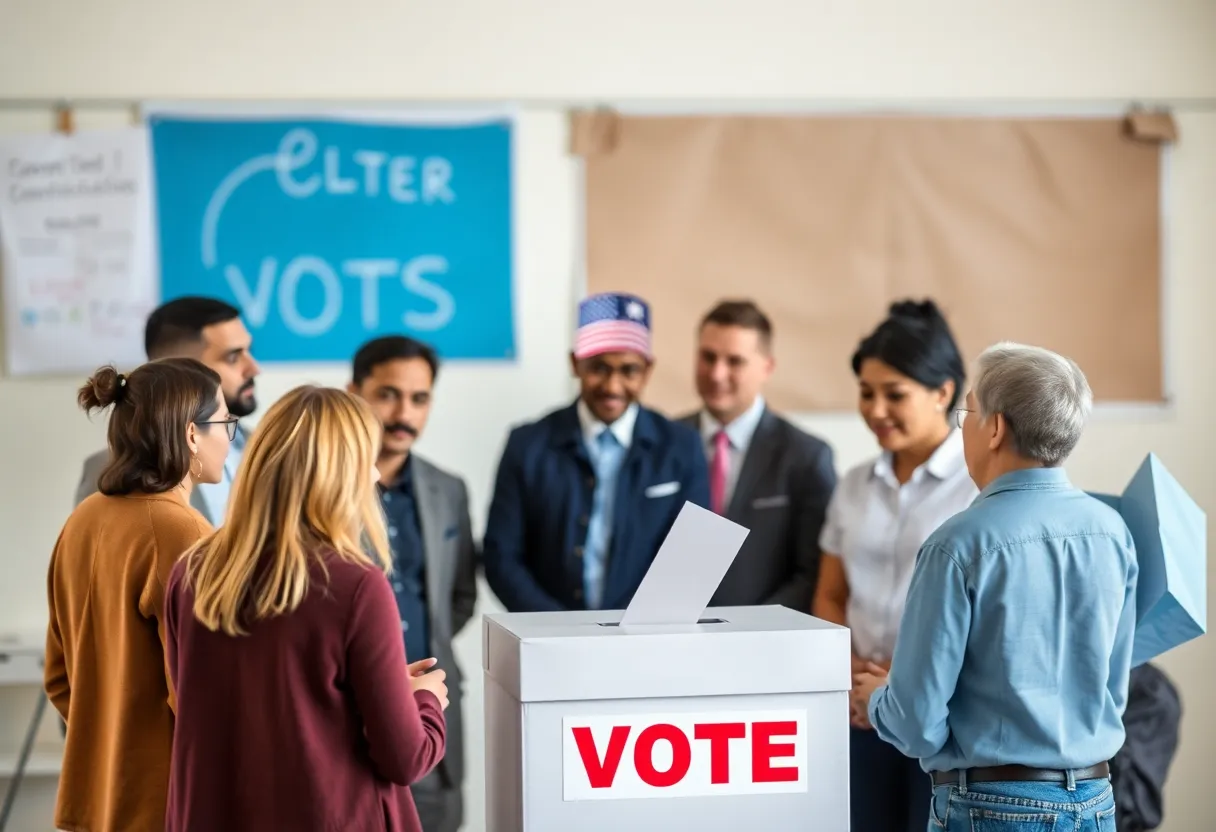News Summary
A recent North Carolina Court of Appeals decision raises questions about the Supreme Court election results, suggesting over 60,000 ballots may have been counted incorrectly. The ruling, made by a 2-1 majority, could shift the narrow lead from Democratic Justice Allison Riggs to Republican candidate Jefferson Griffin, pending voter identification verification. Critics argue the ruling jeopardizes democratic processes and voter rights, while supporters believe it emphasizes the importance of accurate vote counts. This controversial decision may lead to significant implications for future elections.
North Carolina Appeals Court Ruling Could Turn Supreme Court Election Upside Down!
In a surprising turn of events, a ruling from the North Carolina Court of Appeals has thrown the results of the state’s hotly contested Supreme Court election into question. This decision, handed down on a Friday, was a tight 2-1 vote and was made by a panel of judges, all registered as Republicans. The ruling suggests that a significant number of ballots, possibly more than **60,000**, may have been counted incorrectly.
The Election Context
The state Supreme Court race had already been a nail-biter, with **over 5.5 million** ballots cast. Democratic Associate Justice **Allison Riggs** had a narrow lead of just **734 votes** over Republican candidate **Jefferson Griffin** after going through not one but **two recounts**. However, a new mathematical dilemma could shift that lead in Griffin’s favor, based on the court’s recent decision regarding the eligibility of those **tens of thousands** of ballots.
The Friendship with Fair Elections
The court’s decision stems from Griffin’s claims that the **State Board of Elections** was incorrect in dismissing his protests, which he filed in December. According to the judges involved, free elections must include an accurate vote count, and that’s where things get sticky for Riggs and her supporters.
What’s at Stake?
So what does this ruling mean for those affected? Essentially, it means that the more than 60,000 voters whose ballots were challenged will have **15 business days** to provide additional identification or information to keep their votes counted. If they don’t, their ballots will be tossed from the tally. This includes voters who failed to provide the necessary registration info, like a driver’s license number or Social Security number—requirements set by state law since 2004. Further complicating matters, military and overseas voters are also caught in this election web, as their ballots might be considered ineligible without the proper photo identification.
The Dissenting Voice
Not everyone agrees with this decision, though. Judge **Toby Hampson**, who penned the dissent, stated that Griffin lacked sufficient evidence to prove that any voters were ineligible under current laws. Meanwhile, Riggs has made her stance clear, labeling the decision as a move by politicians to disenfranchise lawful voters. The situation is further complicated by the fact that among the six justices remaining on the state Supreme Court, five are registered Republicans.
What’s Next?
The case seems poised to head to the North Carolina Supreme Court. Should that court reach a stalemate with a **3-3** split, the Court of Appeals’ ruling will stand. This sets an unsettling precedent, as it could allow for similar challenges to election results across the nation, raising concerns about undermining the democratic process itself.
Concerns from the Community
Critics of the ruling, including members of the National Democratic Committee, are vocal in their disapproval, claiming it as an attack on democracy and voter rights. As the dust settles, many of the affected voters are feeling confused and unsure about what to do next, especially since they were not adequately informed about the status of their ballots. The elections board has promised to aid these voters through the process should the ruling continue to move forward.
A Closer Look at Voter Registration
This situation shines a light on the **issues with the voter registration database**, with reports suggesting that incorrect information may be due more to clerical errors than any fraudulent activity. As the facts continue to unfold, one thing is clear: the outcome of this case could have wide-ranging implications for how elections are conducted and contested in the future.
In these unpredictable times, every single vote matters, and the battle for transparency and fair elections remains a topic that will continue to engage and inspire conversation for months to come!
Deeper Dive: News & Info About This Topic







